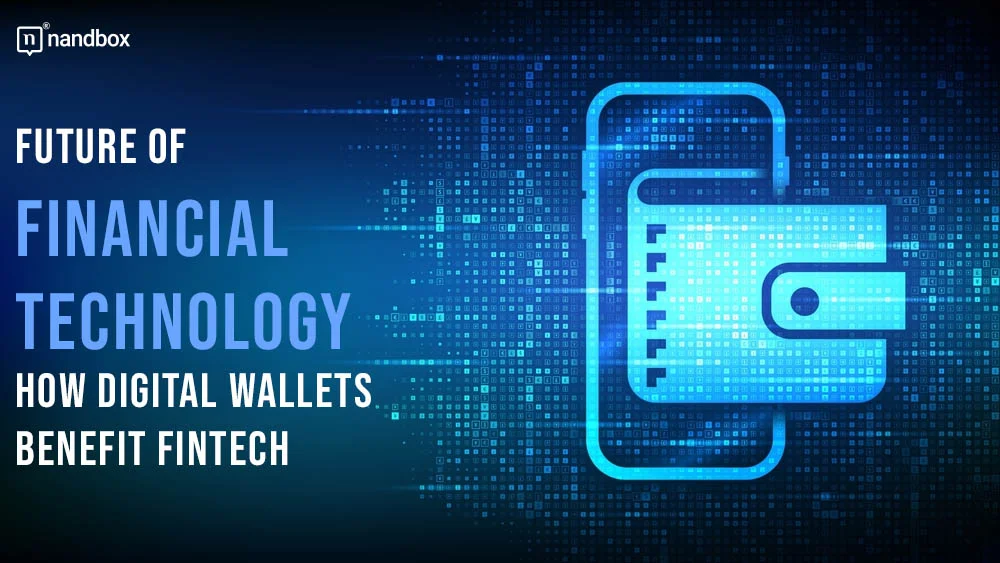In the rapidly evolving world of financial technology (fintech), digital wallets have emerged as a transformative force, reshaping how we manage and conduct financial transactions. By offering a blend of convenience, security, and innovative features, digital wallets are not only enhancing the consumer experience but also driving significant changes within the financial sector. For industries such as futures prop firms, which deal with high-frequency and high-value transactions, the impact of digital wallets is profound. This article explores how digital wallets are revolutionizing fintech and what this means for the future of financial technology.
The Future of Financial Technology: The Rise of Digital Wallets
Digital wallets, also known as e-wallets, are applications that store payment information on a smartphone or other digital devices, enabling users to make transactions without physical cards or cash. Initially designed to simplify everyday purchases, digital wallets have evolved to offer a range of functionalities, including peer-to-peer transfers, loyalty programs, and even investment management. Their rapid adoption can be attributed to their convenience, enhanced security features, and seamless integration with other financial technologies.
For futures prop firms, digital wallets represent a significant advancement in managing transactions. These firms often engage in high-volume trading and need solutions that offer both efficiency and security. Digital wallets, with their advanced features and integration capabilities, meet these needs effectively.
Key Innovations Driving the Revolution
Several innovations within digital wallets are contributing to their transformative impact on fintech. These advancements are not only changing how consumers interact with their finances but also influencing the broader financial ecosystem, including sectors like futures prop firm.
1. Enhanced Security Features
Security is a paramount concern in financial transactions, and digital wallets have made significant strides in addressing this issue. Advanced security features such as tokenization, biometric authentication, and encryption are integral to digital wallets.
- Tokenization: Digital wallets use tokenization to protect sensitive payment information. Instead of transmitting actual card details during transactions, they generate a unique token for each transaction. This process reduces the risk of data breaches and fraud, which is crucial for futures prop firms handling large sums of money.
- Biometric Authentication: Many digital wallets employ biometric authentication methods such as fingerprint recognition and facial recognition. These features enhance security by ensuring that only authorized users can access their wallets and approve transactions.
- Encryption: Encryption technology secures communication between digital wallets and payment networks, safeguarding data from unauthorized access. This is especially important for high-value transactions and sensitive financial data.
2. Integration with Financial Technologies
Digital wallets are increasingly being integrated with other financial technologies, creating a more cohesive and efficient financial ecosystem.
- Blockchain Technology: Some digital wallets are incorporating blockchain technology to offer decentralized and secure transaction capabilities. Blockchain’s immutable ledger and smart contract functionality enhance transparency and security, which can be beneficial for futures prop firms that require reliable transaction records.
- Artificial Intelligence: AI algorithms are being used to analyze transaction patterns and detect anomalies, enhancing fraud detection and risk management. For futures prop firms, AI integration can streamline trading operations and improve decision-making by providing real-time insights and predictive analytics.
- Open Banking: Digital wallets are also integrating with open banking platforms, allowing users to connect their wallets with various financial institutions and services. This connectivity offers greater flexibility in managing accounts and transactions, benefiting firms that need to navigate complex financial landscapes.
3. Seamless User Experience
Digital wallets are designed to offer a seamless user experience, making financial transactions quicker and more convenient. This emphasis on user experience is transforming how people interact with their finances.
- One-Tap Payments: Digital wallets enable one-tap payments, allowing users to complete transactions quickly and effortlessly. This convenience extends to both online and in-store purchases, streamlining the payment process for consumers and businesses alike.
- Cross-Platform Integration: Many digital wallets are compatible with multiple platforms and devices, including smartphones, smartwatches, and tablets. This cross-platform functionality ensures that users can access their wallets and make transactions from various devices, enhancing flexibility and accessibility.
- Automated Financial Management: Digital wallets often include features for budgeting, expense tracking, and financial planning. These tools help users manage their finances more effectively and make informed decisions about spending and saving.
The Impact on Financial Services
The rise of digital wallets is having a profound impact on financial services, including traditional banking, investment management, and trading.
1. Disruption of Traditional Banking
Digital wallets are disrupting traditional banking by offering alternative payment solutions and financial services. Consumers are increasingly turning to digital wallets for everyday transactions, reducing their reliance on physical banks and credit cards. This shift is prompting banks to adapt and innovate to stay competitive in the evolving financial landscape.
2. Transformation of Investment Management
Digital wallets are also transforming investment management by integrating features such as investment tracking and portfolio management. Users can monitor their investments, make trades, and access financial insights directly through their digital wallets. This integration makes investment management more accessible and convenient, especially for retail investors.
3. Revolutionizing Trading Operations
For futures prop firms, digital wallets are revolutionizing trading operations by providing secure and efficient transaction solutions. High-frequency trading, which involves executing a large number of trades in a short period of time, benefits from the speed and reliability of digital wallets. Additionally, the integration of AI and blockchain technologies enhances transparency and risk management in trading activities.
The Future of Financial Technology and Digital Wallets
As digital wallets continue to evolve, they are expected to play an increasingly central role in the future of fintech. Key trends shaping the future include:
- Increased Adoption of Cryptocurrencies: Digital wallets are likely to support a wider range of cryptocurrencies and blockchain-based assets, offering users greater flexibility in managing digital assets.
- Expansion of Digital Wallet Features: Future digital wallets may include advanced features such as integrated insurance, credit scoring, and personalized financial advice, further enhancing their utility and appeal.
- Greater Regulatory Oversight: As digital wallets become more prevalent, regulatory frameworks are likely to evolve to address emerging challenges and ensure consumer protection. Compliance with these regulations will be crucial for digital wallet providers and financial firms.
Conclusion
Digital wallets are revolutionizing the fintech landscape by offering enhanced security, seamless user experiences, and integration with cutting-edge financial technologies. For futures prop firms, the impact of digital wallets is particularly significant, providing secure and efficient solutions for managing high-frequency and high-value transactions. As digital wallets continue to evolve, they will play an increasingly central role in shaping the future of financial technology, driving innovation, and transforming how we manage and interact with our finances.





